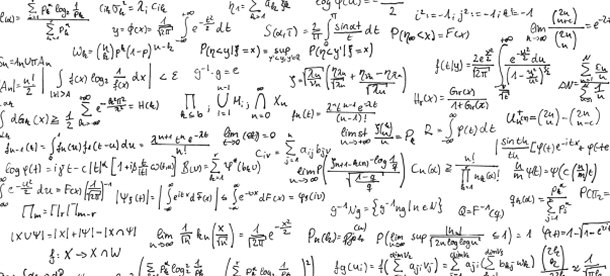

Multivariate calc: Techniques of calculus in two and three dimensions. see at my university, the undergrads do:Ĭalc 1: Continuity, limits, and the derivative for algebraic, trigonometric, logarithmic, exponential, and inverse functionsĬalc 2: The definite integral, techniques of integration, and applications to physics, chemistry, and engineering. I agree with the folk who have responded about things being more proof-based and more along the lines of a real analysis course. Much better to start improving your proof-writing abilities in a comfortable area like calculus. the nuances of measure theory, something usually covered in a real analysis course) without any intuition, and with weak proof-writing abilities, you'll be doomed from the start.

Actually, it is extremely helpful to know all the material already, so that you have an intuition for what you should be able to prove! If you try to get started on something already difficult to understand (e.g. You might think that you won't learn much because you already know the material, but if you aren't totally comfortable with proofs, that is very far from the truth. If you don't know what an "epsilon-delta" proof is, I would hesitate very much to take a class in real analysis (though this may depend on the school). If you don't know what to expect, it will be a MUCH more rigorous formulation than you would guess. If, on the other hand, you are either uncomfortable writing proofs, or haven't taken a serious introduction to proof-writing, you would be well-advised to take a course like advanced calculus, which is designed to introduce you to formal proof writing. "epsilon-delta" proofs), go for real analysis. My recommendation: if you are comfortable with proofs, have taken proof based classes (intensively proof-based is preferable), and are comfortable with writing basic analysis proofs (e.g. At least at my undergrad university, real analysis courses were more focused on measure theory and Lebesgue integration, whereas advanced calculus is the class where you learn to prove everything you learned in your regular calculus sequence. It is definitely worth knowing about it.Advanced Calculus usually means a proof-based version of calculus. The material is hard, but it is also the standard foundation on which all modern mathematics rests. Other more recent books have been written to help current students making their first transition to rigorous material, such as the introduction to analysis by Arthur Mattuck, or Maxwell Rosenlicht. These books were written when this course was taught to beginners, so they treat you like an intelligent beginner. On the other hand, Spivak's calculus book goes a long way to explain clearly what is going on in this topic. Rudin's book is famous for its terse style, which many people find makes the subject more dificult than necessary.

A key factor in the difficulty of the course may be the book you use. So apparently you are talking about the first course in which they use "epsilon and delta". When i realized he was talking about elementary but rigorous calculus i recalled more accurately that it had been quite difficult, since it was my first encounter with real math, but very invigorating and satisfying nonetheless.


 0 kommentar(er)
0 kommentar(er)
